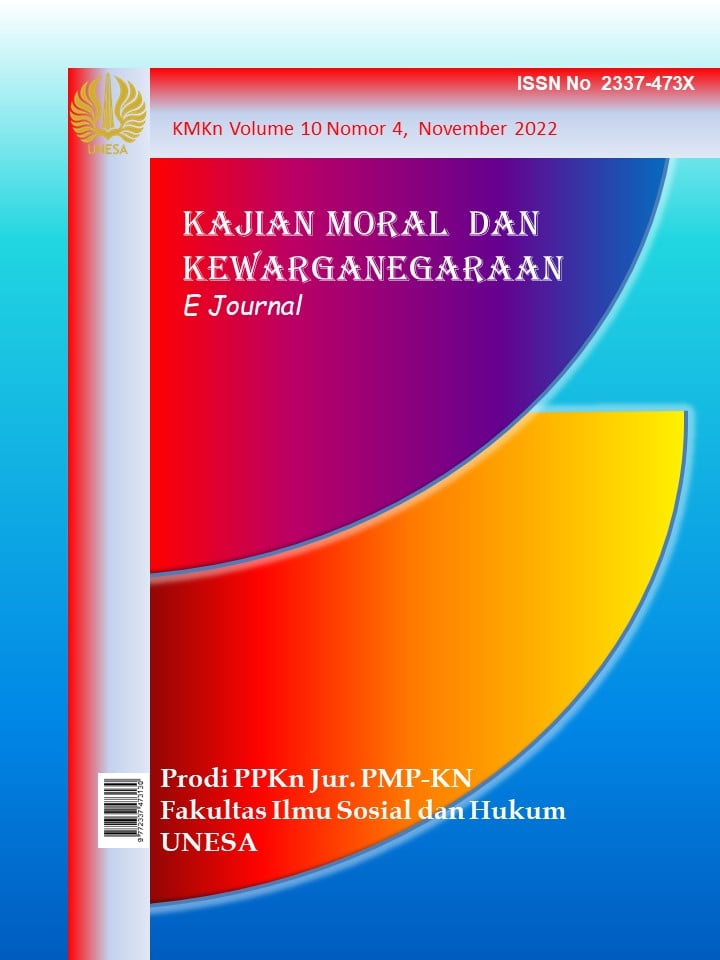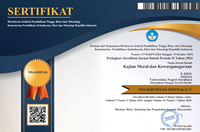Peran Guru Pendidikan Kewarganegaraan dalam Membangun Karakter Nasionalisme Siswa Kelas VIII SMP Negeri 1 Pucuk Lamongan
DOI:
https://doi.org/10.26740/kmkn.v10n4.p961-975Abstrak
Social interaction in society is formed because of patterns of behavior, whether it is good behavior patterns or bad behavior patterns. Bad behavior or commonly referred to as deviant behavior is caused by many people, especially the younger generation, who cannot fully understand the importance of studying civic education, especially regarding the character of nationalism. This is where the role of the teacher is needed, namely the teacher is expected to be able to overcome or control his students in improving behavior. This study aims to determine the role of civic education teachers in building the nationalist character of class VIII students of SMP Negeri 1 Pucuk. The research method used is descriptive qualitative research using the theory of role theory by Biddle and Thomas. This study took place at SMP Negeri 1 Pucuk with a population of 639 students and this study took a sample of 6 students from class VIII (eight) students for the 2021/2022 academic year and one civics education teacher. The results of this study indicate that the teacher's most dominant role in shaping the character of nationalism in schools is as a motivator, as a corrector, and as a guide. As a motivator, the teacher uses verbal means with reinforcement rather than punishment. As a corrector, the teacher prepares students as capable individuals. Meanwhile, as a supervisor, the teacher provides guidance to students to meet their learning needs.
Keywords: Role, Citizenship Education Teacher, Nationalism Character
Unduhan
Unduhan
Diterbitkan
Cara Mengutip
Terbitan
Bagian
 Abstract views: 253
,
Abstract views: 253
, PDF Downloads: 751
PDF Downloads: 751





